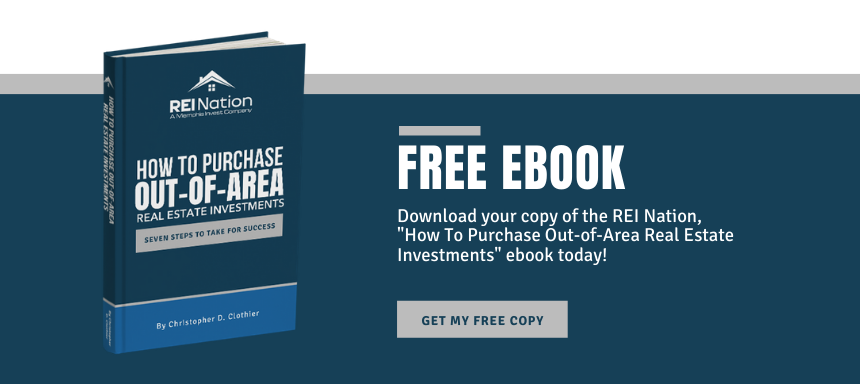 You have a vested interest in keeping good tenants around. After all, a good relationship between you, your property manager and those living in your rental property is something to be cherished and nurtured. You want to be and can be in this for the long term with your renters. If a lease on your property is running out, however, and the future is unclear for tenants, there is something you can do about it. Real estate investing has many moving parts, and long-term buy and hold real estate has even more. Profitability is not just about finding and buying property but also about how you manage that investment.
You have a vested interest in keeping good tenants around. After all, a good relationship between you, your property manager and those living in your rental property is something to be cherished and nurtured. You want to be and can be in this for the long term with your renters. If a lease on your property is running out, however, and the future is unclear for tenants, there is something you can do about it. Real estate investing has many moving parts, and long-term buy and hold real estate has even more. Profitability is not just about finding and buying property but also about how you manage that investment.
We're talking about incentives. Lease renewal incentives.
Ultimately, if you get good tenants to stay longer in your property, the less time, energy and money you’ll have to dedicate to finding new, equally good tenants down the line. Whatever incentive you decide to offer will pay for itself in due time if you can manage to keep quality renters around for the long haul — which is always good news for your investments.
How do you provide the right incentives for your tenants? Some incentives are universally more appealing than others, and how they are implemented also affect how attractive they are to your tenants. Tailor what you offer to the unique circumstances of your rental property and those living in it. Meet tenants' short-term and long-term needs, and they will be happy to stay where they are.
Remember: Enticing tenants to stay is important to keeping your profits up. Tenant retention saves you the personal and monetary toll of frequent turnover and a vacant property.
The Best Incentives for Rental Lease Renewal
Monetary Incentives
Software Advice conducted a survey in January that says cash is king! When asking tenants to renew their leases, cash bonuses sway 52% of renters to stick around. Within the various types of monetary incentives, discounts on rent are by far the most popular (reigning at 58%), followed by actual hard cash, then security deposit rebates, and, at the smallest percentage at 4%, retail gift cards. Of course, the popularity of the incentives still varies within age groups, but overall the immediate savings found in rent discounts and cash are most popular — not just within monetary incentives, but overall. That does not mean, however, that you have to ignore other lease renewal incentive options.
Non-Monetary Incentives
For non-monetary incentives, we refer to things like gifts. Out of what you can offer to tenants, kitchen appliances seem to be most popular — which makes sense, as the kitchen is consistently one of the most important rooms in a rental property. Following appliances on the gift list is a television, and just behind it, other tech tools such as a tablet computer. It's interesting to note that men greatly preferred a TV in comparison to women.
Unit Upgrade Incentives
New kitchen appliances are often not as appealing as a more practical, whole-unit or rental property upgrades. Among unit upgrades, the most coveted are: new flooring and washers/dryers. Behind those upgrades are kitchen appliances and new paint — while both can be nice, tenants prefer upgrades that make a more widespread impact in the whole property or apartment. These can be good for you, too. If you need to replace the flooring or have been planning upgrades already, they can act to boost your property’s value while also keeping good tenants around.
Off-Site Incentives
Not all incentives have to revolve around the property. In fact, 47% of renters said that they would be more likely to renew their lease if offered a membership to a local gym. Just behind gym memberships were subscriptions to a grocery delivery service.
Service Incentives
Service incentives are also an interesting option. Media services, such as free cable television and Internet services, top the list above house cleaning and laundry services. TV outranks Internet services, which predominantly appealed to the younger demographic, ages 18 to 34.
When Do I Offer Incentives?
Timing is everything when it comes to dropping your lease renewal incentives on tenants. You don’t want your incentive to seem like a bribe or an afterthought. Very few tenants respond to these incentives after they have already sent a move-out notice, and even fewer respond to them a few months into their lease. The absolute best times to offer your incentives for a rental lease renewal are just before the lease ends (45%) or when they first sign their lease (43%).
Overall, tenants are most attracted to immediate monetary incentives and those that add significant convenience to their renting experience. Whether or not you want to include incentives in your strategies to keep good tenants around, you can utilize this data to get a closer look into what matters to your renters — and what will keep them coming back for more.
Do you offer rental lease renewal incentives to your tenants? Tell us what kind in the comments.












